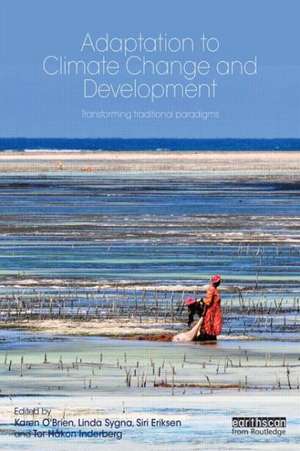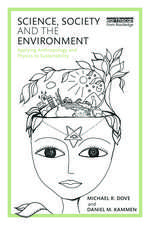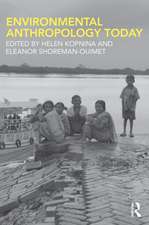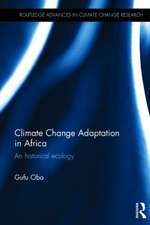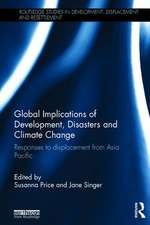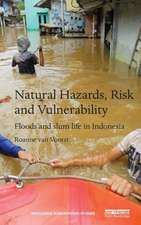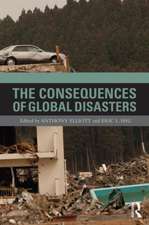Climate Change Adaptation and Development: Transforming Paradigms and Practices
Autor Tor Hkon Inderberg, Siri Eriksen, Linda Sygna, Karen O'brienen Limba Engleză Paperback – 25 noi 2014
Preț: 446.13 lei
Nou
85.44€ • 88.03$ • 71.57£
Carte tipărită la comandă
Livrare economică 24 februarie-10 martie
Specificații
ISBN-10: 1138025984
Pagini: 312
Ilustrații: 34 black & white illustrations, 17 black & white tables, 4 black & white halftones, 13 black & white line drawings
Dimensiuni: 156 x 234 x 20 mm
Greutate: 0.45 kg
Ediția:1
Editura: Taylor & Francis
Colecția Routledge
Locul publicării:Oxford, United Kingdom
Public țintă
PostgraduateCuprins
Recenzii
"Although everyone talks about the relationship between adaptation and development, very few initiatives – if any – take a radical enough approach for sustainable adaptation to happen. This book, edited by dedicated ambassadors of the message that transformational development is necessary, will have a profound impact on our understanding of these issues." –Lisa Schipper, Adaptation and Vulnerability Researcher and Research Associate, Overseas Development Institute (ODI), UK
"This book is a first rate and stimulating contribution to the complex issue of climate change adaptation and development. It is an authoritative and meticulously researched treatise that contributes to critical understanding by unravelling the intertwined relationship between climate change adaptation and development. I strongly recommend this book to anyone interested in any aspect of climate change adaptation and development." –Youba Sokona, Special Advisor of Sustainable Development, South Centre, Switzerland, Co-Chair Intergovernmental Panel on Climate Change Working Group III and Member of Future Earth Science Committee
"Climate change adaptation projects are expected to increase in numbers. There is a need for an inclusive approach, engaging with local communities, and paying attention to vulnerability aspects. Therefore, this book is highly recommended reading to all development and climate change policy-level stakeholders, financiers, and practitioners." –Heidi Hautala, Member of the Development Committee of the European Parliament and former Minister for International Development of Finland
"The old fault-lines of whether vulnerability is structural or technical emerge in the new challenges of adaptation. Dabbling at the edges is not enough. Take the concrete lessons in this book as your evidence for profound change-making that transforms our future." –Thomas E Downing, CEO, Oxford Centre for Innovation, UK
Notă biografică
Tor Hakon Inderberg is Senior Research Fellow and Director of the European Programme at the Fridtjof Nansen Institute, Norway. Siri Eriksen is Associate Professor at the Department of International Environment and Development Studies, Norwegian University of Life Sciences, Norway. Karen O'Brien is a Professor of Human Geography at the Department of Sociology and Human Geography, University of Oslo, Norway. Linda Sygna is Co-Founder of cCHANGE - Transformation in a Changing climate, cchange.no.
Descriere
Climate change poses multiple challenges to development. It affects lives and livelihoods, infrastructure and institutions, as well as beliefs, cultures and identities. There is a growing recognition that the social dimensions of vulnerability and adaptation now need to move to the forefront of development policies and practices. This book presents case studies showing that climate change is as much a problem of development as for development, with many of the risks closely linked to past, present and future development pathways.
